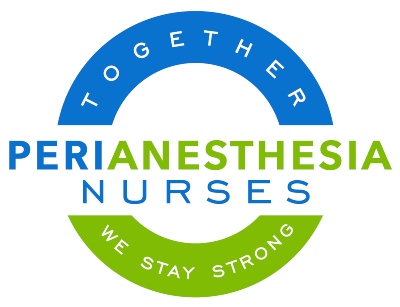The list of fears people have about surgery is long and varied. With the help of a perianesthesia nurse, those concerns–about the procedure itself to pain afterwards (and all the worries in between)–can be alleviated. As a patient ally before, during, and after a procedure, perianesthesia nurses are the patient’s voice when they aren’t able to advocate for themselves.
This week celebrates PeriAnesthesia Nurse Awareness Week (February 7-13) to help people understand this nursing specialty as a career and as a patient-focused presence throughout a procedure. Sponsored by the American Society of PeriAnesthesia Nurses, this week helps highlight the professional work of the nurses who patients depend on but often don’t realize exactly what they do.
The biggest surprise for many patients is that in many organizations perianesthesia nurses remain by their sides throughout the entire procedure. They are the nurses who assess them and administer care in the often-nervous times right before a procedure. Once the patient is under sedation, perianesthesia nurses remain with the patient throughout the procedure to continually monitor their progress and care for them when they aren’t able to speak.
Once the patient moves to recovery, perianesthesia nurses continue their careful assessment and monitoring all while they are helping a patient emerge from anesthesia. And while patients might remember the beginning and ending of the process, they often are surprised to know their perianesthesia nurse remained with them the entire time.
If you’re interested in a career as a perianesthesia nurse, your attention to hands-on details like assessing equipment or the patient’s vital signs must be exacting. Your focus on the patient is unrelenting because they are under sedation for the majority of the time you might be with them.
Other skills that are more difficult to quantify are the perianesthesia nurse’s true superpower. As a perianesthesia nurse, you need to become an expert at monitoring the most subtle changes in a patient–often the things that could go unnoticed during a busy procedure. You’ll become the expert on noticing the most minor change in the patient’s breathing or coloring. You’ll notice if something just seems off or if the patient seems to be in or approaching even the most minor distress.
During procedures, nurses in this role are comfortable acting fast, speaking up quickly, and persisting to ensure their concerns are acted upon. They know the patient can’t speak up and so they take this responsibility to heart. When they are with a patient, perianesthesia nurses are efficient at gathering information while making the patient feel more at ease when they are awake and as an essential part of the surgical team. It’s a tough balancing act and nurses in the role say they develop certain approaches over time that work best for them.
They excel at engaging patients in casual conversation in pre-op that also gives the nurses information they need to provide the best care. While chatting about hobbies, family members, music, or cooking might seem like offhand talk before surgery, perianesthesia nurses direct the conversation with purpose. They are constantly looking for topics patients are especially happy to discuss. It helps reduce the patient’s anxiety about the procedure, and the nurse uses the information as part of an overall approach. When the patient is emerging from sedation in recovery, they can be confused or feeling unwell. They might wake up agitated or emotional. As nurses monitor the patient’s status, they will bring up those same topics to help the patient come to with familiar conversation. In the recovery period, nurses will also assist with pain management and will watch for signs the patient is ready to move out of recovery.
If you’re thinking of work as a perianesthesia nurse, find out as much as you can about what your day will be like and how nurses sharpen their skills for this work. The work with patients is direct, but it’s not the same as other specialties as patients often are hazy on the details of what’s going on around them. But your high-quality nursing care and role as an advocate are meaningful and rewarding.
- A Camp Nurse Volunteer Shares the Joy - April 30, 2024
- Is the FNP Program Right for You? - April 24, 2024
- WOC Nurses Week Highlights Specialty - April 16, 2024



